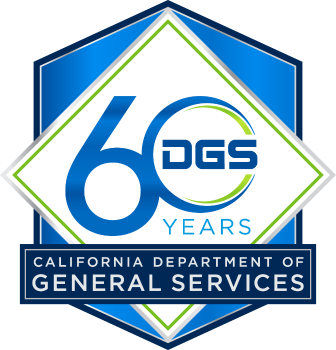California Distributes an Additional $1 Million in Planning Grants, Continuing Efforts to Strengthen Education-to-Career Pipeline
SACRAMENTO – The Department of General Services (DGS) today announced that the state is awarding $1 million in planning grants to the Bay Area, Central Coast, Northern San Joaquin, and Eastern Sierra regions in a continuance of efforts to strengthen the K-16 education-to-career pipeline. The grants are for planning purposes to enable these regions to submit final applications to the Regional K-16 Education Collaboratives Grant Program, which is a $250 million investment providing new pathways to career opportunities and addressing long-standing equity gaps for students in their local communities.
The program, administered by DGS’ Office of Public School Construction and Foundation for California Community Colleges, provides funding to enhance or create collaborative efforts between the University of California system, the California State University system, Community Colleges, K-12 School Districts, and workforce partners. This is a key component of a statewide strategy for cultivating regional economies and ensuring that education, vocational, and workforce programs work together to strengthen education and employment opportunities. Planning grant funds are designed to assist regions that could benefit from these additional resources to strengthen or prepare full implementation applications by fall of 2023.
“The Department of General Services is thrilled to award these planning funds to the remaining four regions of the state,” said DGS Director Ana Lasso. “Statewide representation in this collaborative effort will maximize the program resources to ensure that all regions have an opportunity to enhance and streamline efforts to prepare students for meaningful careers and address equity issues. We look forward to reviewing the implementation applications that the collaboratives bring forward next year.”
$250,000 each will be awarded to the following collaboratives:
Bay Area
The Bay Area K-16 Collaborative is a network of educational institutions, including – Chabot-Las Positas Community College District, Hayward Unified School District, CSU East Bay, and UC Berkely – as well as employers, organizations, and stakeholders building a seamless educational path to opportunity in the Bay Area. The partners will shift from a silo approach to a collaborative model that accelerates degree completion for students of color and under resourced students.
Central Coast
The Central Coast K-16 Education will engage partners across the region, including – Pajaro Valley Unified School District, Ventura County Community College District, CSU Monterey Bay, and UC Santa Barbara. They will use the planning year to establish a sustainable governance model, make data-informed and equity-centered decisions and implementation plans that will enable the Collaborative to address equity gaps along the education to employment pathways for historically marginalized students and communities.
Eastern Sierra
Partners from the Eastern Sierra region - Columbia College, Sonora Union High School District, CSU Stanislaus, and UC Merced - are committed to utilizing a one-year planning grant to cohesively connect the fragmented and isolated service areas in this large geographic region. They plan to form a sustainable, intersegmental collaborative with a focus on equity and access for under-served students.
Northern San Joaquin Valley
The newly formed tri-county collaborative, WE Will!, brings together partners – UC Merced, Modesto City Schools, San Joaquin Delta College, and CSU, Stanislaus – and marks the first effort of its kind in the Northern San Joaquin Valley region. In their planning year, they aim to build upon regional assets to strengthen education and workforce partnerships and provide high-quality pathways resulting in a strong workforce for in-demand industry sectors. They will prioritize promoting equity and access while reducing barriers for all students and job seekers.
Earlier this year in May and August, full implementation grants were awarded to the Central San Joaquin Valley, North State, Kern County, Redwood Coast, Orange County, Sacramento, Los Angeles, Border, and Inland Empire regions totaling approximately $163 million.
Summaries of each grant can be found here.
The State Allocation Board is responsible for determining the allocation of voter-approved school construction bonds and state funding for the School Facility Program as well as state funding for the California Preschool, Transitional Kindergarten and Full-Day Kindergarten Facilities Grant Program. The SAB is the policy-level body for programs administered by the Office of Public School Construction, which resides under the state of California’s Department of General Services. The Office of Public School Construction provides the staff and support for state financing of school facilities.
DGS serves the public by providing a variety of services to state agencies through procurement and acquisition solutions; real estate management and design; environmentally friendly transportation; professional printing, design and web services; administrative hearings; legal services; building standards; oversight of structural safety, fire/life safety and accessibility for the design and construction of K-12 public schools and community colleges; funding for school construction; and disability access.

